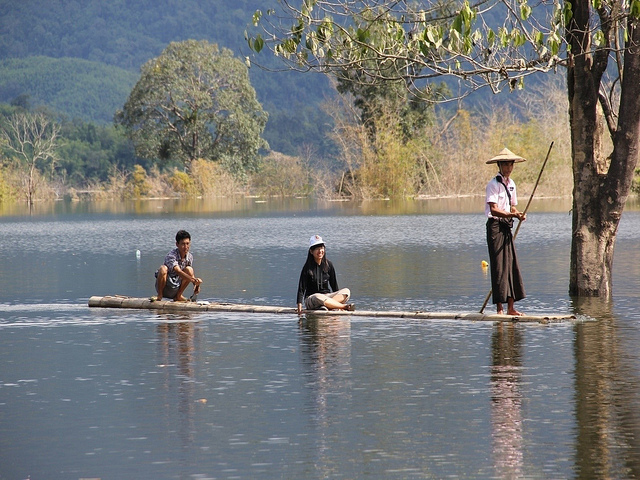Cornell, EDF partner on environmental projects

Cornell University’s Atkinson Center for a Sustainable Future and Environmental Defense Fund (EDF) announced four new research projects addressing pressing health and environmental issues Nov. 9. The projects mark the official launch of a new partnership between the two institutions made possible by a $1.7 million grant from Cornell alumnus and private investor David Atkinson ’60 and his wife, Patricia Atkinson.
EDF is a leading science-based advocacy organization working to translate cutting-edge science into policy and effect positive change. The Atkinson Center brings together researchers from departments across campus for an interdisciplinary approach to addressing energy, the environment and economic sustainability issues. The partnership between EDF and the Atkinson Center aims to accelerate problem-solving research relevant to national and international policy discussions and catalyze the rapid integration of new research into effective policy, addressing urgent environmental and public health challenges.
“This partnership presents a remarkable opportunity to integrate results-focused environmental policy and pioneering scientific research,” Cornell President Elizabeth Garrett said. “The continued support of the Atkinsons through this new grant will allow us to leverage expertise at Cornell and EDF to more effectively develop targeted solutions to pressing global environmental challenges.”
Today’s announcement comes as more than a dozen EDF policy and science staff arrive on the Cornell campus to meet with faculty for two days to identify future projects with the potential for measurable impact.
“We are very excited about this chance to work more closely with the brilliant scientists at Cornell and reimagine how academic research and policy outcomes can be more rapidly integrated,” said EDF President Fred Krupp. “These joint projects will allow us to have a much more positive impact than either of us could achieve alone. We’ll be adding to the body of scientific knowledge, improving the quality of life for many people, and protecting the planet all at the same time.”
The first four projects are:
- Locating and quantifying methane emissions using a Google Streetview car: Methane is a powerful greenhouse gas that contributes significantly to climate change. EDF and Google Earth Outreach launched a successful pilot program to track methane emissions last year. The new collaboration with Cornell will allow for more field measuring and more complex modeling to analyze the collected data. The ultimate goal is to find and stop dangerous methane leaks.
- Protecting fish – and fishermen – in Myanmar: EDF has helped develop catch shares programs in the U.S., Europe, Mexico, Belize and Cuba in order to prevent overfishing and protect a vital food source. The new project will expand the work to Asia and help coastal communities in Myanmar maintain productive fisheries and provide ample food while protecting the environment.
- A National Survey on Environmental Priorities in Different Ethnic Communities in the U.S.: Minority communities in the U.S., especially Hispanic communities, report high levels of concern about environmental problems but are less likely to engage in traditional environmentally friendly actions. Cornell and EDF will launch a new national survey to better understand the factors that are important to different ethnic communities and the approaches that will best resonate with them.
- Increasing corn production while reducing fertilizer pollution: Nitrogen runoff from fertilizer is a major environmental pollutant. EDF has been working to increase both knowledge of sustainable agriculture practices and demand for sustainably produced farm products. Cornell’s Adapt-N precision farming tool helps farmers apply fertilizer for maximum effectiveness and uptake, reducing runoff into streams and waterways. The project will help Corn Belt communities increase food production for a growing world, reduce costs and reduce pollution.
The collaboration also offers new opportunities for young scholars to work at the intersection of science and policy. An internship program started this past summer places Cornell undergrads in EDF offices to train the next generation of environmental leaders and catalyze rapid uptake of new scientific insights.
Media Contact
Get Cornell news delivered right to your inbox.
Subscribe